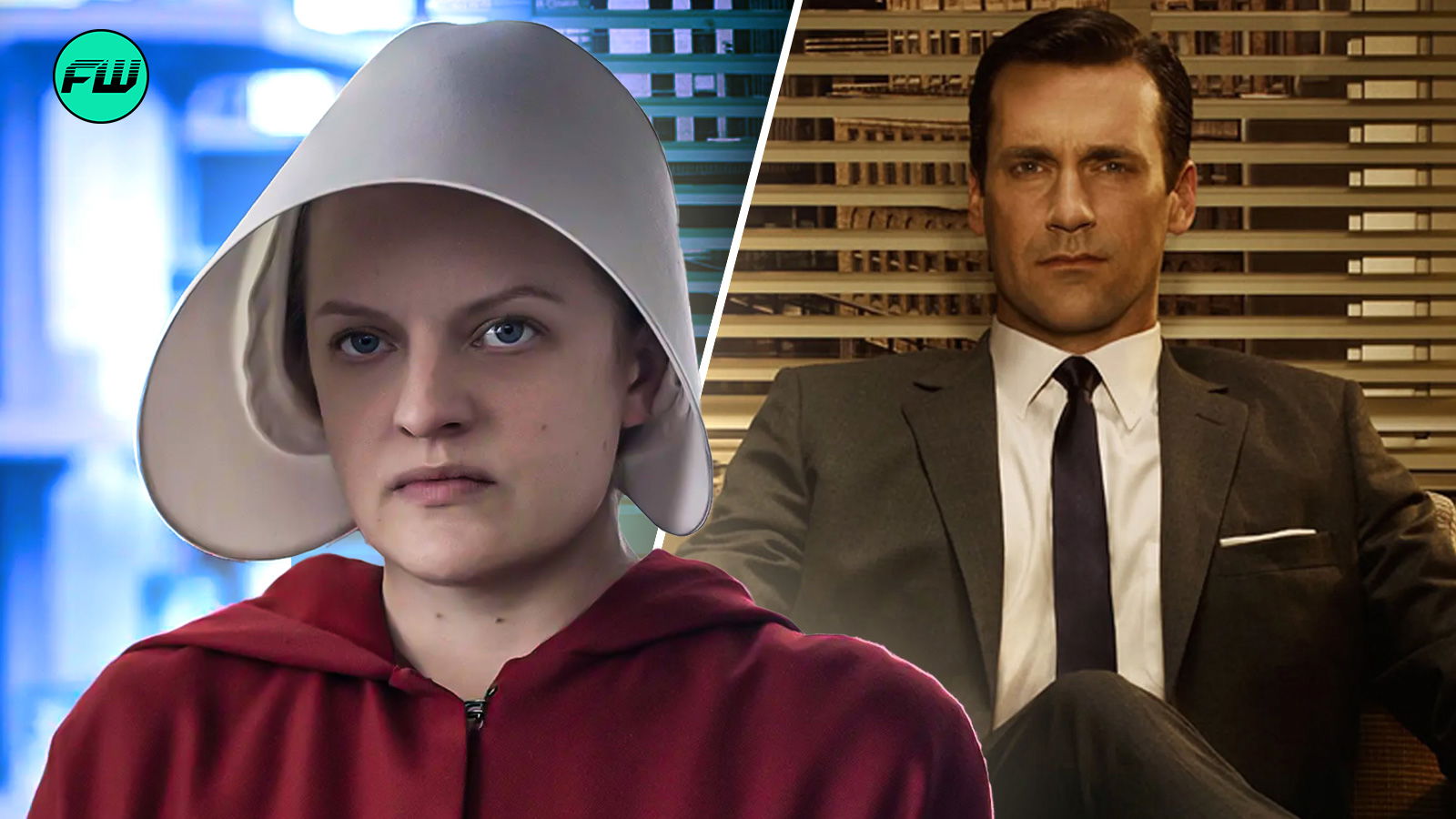Elisabeth Moss says ‘The Handmaid’s Tale’ exposed a deeper truth about womanhood than ‘Mad Men’ ever could

SUMMARY:
- Elisabeth Moss reflects on how ‘The Handmaid’s Tale’ demanded emotional expression more than dialogue.
- She explains why June (Offred) reveals the female experience more powerfully than Peggy Olson.
- Moss credits the series’ writers for brilliantly translating Margaret Atwood’s internal narrative to the screen.
As ‘The Handmaid’s Tale’ wraps its final season on Hulu, Elisabeth Moss opened up about what made the role of June so demanding—and so different—from her performance as Peggy in ‘Mad Men’. While both characters navigate patriarchal systems, Moss believes her portrayal in the dystopian drama offered a richer emotional and psychological journey.

Elisabeth Moss calls ‘The Handmaid’s Tale’ more internal than ‘Mad Men’
In an interview from the show’s debut season, Moss discussed how the series leaned heavily on non-verbal storytelling. Compared to ‘Mad Men’, where dialogue carried much of the weight, ‘The Handmaid’s Tale’ often relied on subtle facial expressions to communicate the oppressive atmosphere and June’s personal evolution.
“It’s such an internal experience,” Moss said. “There’s very little dialogue, and a lot of the show is built on visual cues and internal emotion. Sometimes, there’s hardly anything to read in a script—it’s all in the description.”

She added that this stripped-down approach forced the actors to explore their characters on a deeper level. In June’s case, it meant channeling rage, defiance, and grief in complete silence—a task Moss says pushed her further than her previous roles.
Translating Atwood’s first-person voice for the screen
Moss praised showrunner Bruce Miller and the writing team for successfully adapting Atwood’s introspective and literary prose into compelling visual drama. What seemed like an impossible task—turning a story told entirely from Offred’s mind into watchable TV—was achieved through minimalist scripting and immersive direction.
“They really did the impossible,” she said. “You read the scripts and just think, ‘Wow, they actually pulled it off.’ They found a way to turn Atwood’s voice into a show that still feels deeply personal. It’s brilliant.”
From Handmaid to Hero: June’s journey

Over six seasons, Moss’s character transformed from a subjugated Handmaid to a figure of fierce resistance. In doing so, she became a symbol for women confronting power, violence, and injustice. Moss hoped her portrayal would resonate beyond the screen.
“I hope June gives courage to women—whether they’re in the U.S. or somewhere else,” she said during the season six premiere. “She’s someone to look up to. She’s brave. I admire her.”

As an executive producer, Moss also directed several episodes, including the series finale. Co-producer Yahlin Chang promised the last season would offer “real closure and emotional payoff,” while actor Max Minghella hinted that fans should expect big surprises.
All episodes of ‘The Handmaid’s Tale’ are currently streaming on Hulu.